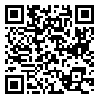Volume 17, Issue 3 (12-2019)
sjsph 2019, 17(3): 229-242 |
Back to browse issues page
Download citation:
BibTeX | RIS | EndNote | Medlars | ProCite | Reference Manager | RefWorks
Send citation to:



BibTeX | RIS | EndNote | Medlars | ProCite | Reference Manager | RefWorks
Send citation to:
Afzali L, Ghasemzadeh S, Hashemi Bakhshi M. Effects of Family-Based Interventions on Clinical Symptoms and Social Skills of Hyperactive Children. sjsph 2019; 17 (3) :229-242
URL: http://sjsph.tums.ac.ir/article-1-5791-en.html
URL: http://sjsph.tums.ac.ir/article-1-5791-en.html
Effects of Family-Based Interventions on Clinical Symptoms and Social Skills of Hyperactive Children
1- PhD. Department of Educational Psychology, Faculty of Psychology and Education, University of Tehran, Tehran, Iran
2- PhD. Assistant Professor, Department of Psychology and Education of Exceptional Children, Faculty of Psychology and Education, University of Tehran, Tehran, Iran ,s.ghasemzadeh@ut.ac.ir
3- PhD. Psychology and Education of Exceptional Children, Faculty of Literature, Humanities and Social Sciences (SLHSS), Science and Research Branch, Islamic Azad University, Tehran, Iran
2- PhD. Assistant Professor, Department of Psychology and Education of Exceptional Children, Faculty of Psychology and Education, University of Tehran, Tehran, Iran ,
3- PhD. Psychology and Education of Exceptional Children, Faculty of Literature, Humanities and Social Sciences (SLHSS), Science and Research Branch, Islamic Azad University, Tehran, Iran
Abstract: (2661 Views)
Background and Aim: The purpose of this study was to determine the effect of family-based interventions on clinical symptoms and social skills of hyperactive children.
Material and Methods: This was a quasi-experimental study with pre- and post-test. A total of 28 school students with attention deficit hyperactivity disorder (ADHD) referring to a Psychiatric and Rehabilitation Counseling Center along with their parents were selected using the available sampling method as the main sample of the study. They were then divided into two equal groups ─ an experimental group receiving intervention (family therapy) and a control group receiving no intervention. The research tools were the Inderbitzen and Foster Adolescents Social Skills Questionnaire (CWS, 1992) and the Conners Parent Questionnaire (1999). Multivariate analysis of covariance was used to analyze the data.
Results: Analysis of the data showed that family-based interventions can lead to increases in social skills and decrease clinical symptoms in children with ADHD.
Conclusion: It is concluded that family-based intervention can result in enhancing social skills and reducing clinical symptoms in children with attention deficit hyperactivity disorder.
Material and Methods: This was a quasi-experimental study with pre- and post-test. A total of 28 school students with attention deficit hyperactivity disorder (ADHD) referring to a Psychiatric and Rehabilitation Counseling Center along with their parents were selected using the available sampling method as the main sample of the study. They were then divided into two equal groups ─ an experimental group receiving intervention (family therapy) and a control group receiving no intervention. The research tools were the Inderbitzen and Foster Adolescents Social Skills Questionnaire (CWS, 1992) and the Conners Parent Questionnaire (1999). Multivariate analysis of covariance was used to analyze the data.
Results: Analysis of the data showed that family-based interventions can lead to increases in social skills and decrease clinical symptoms in children with ADHD.
Conclusion: It is concluded that family-based intervention can result in enhancing social skills and reducing clinical symptoms in children with attention deficit hyperactivity disorder.
Type of Study: Research |
Subject:
Public Health
Received: 2019/12/18 | Accepted: 2019/12/18 | Published: 2019/12/18
Received: 2019/12/18 | Accepted: 2019/12/18 | Published: 2019/12/18
Send email to the article author
| Rights and permissions | |
 |
This work is licensed under a Creative Commons Attribution-NonCommercial 4.0 International License. |





